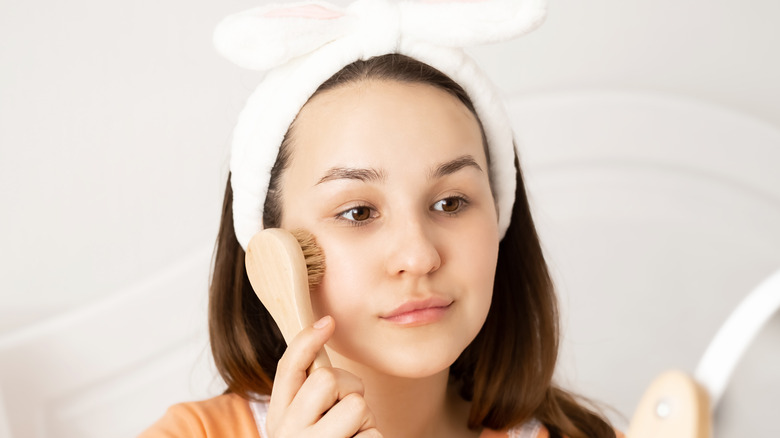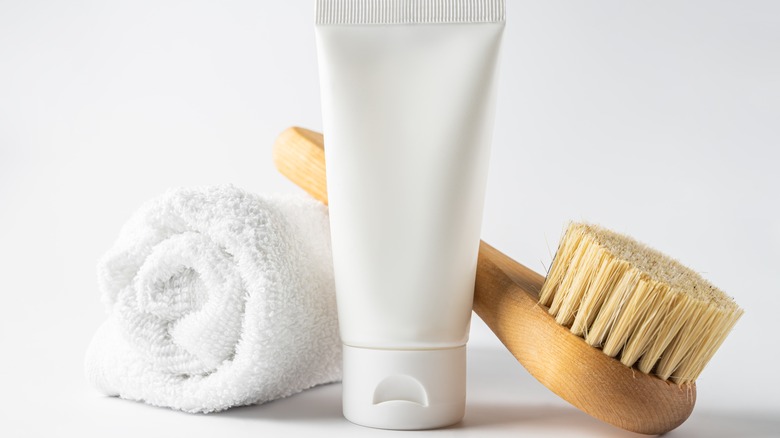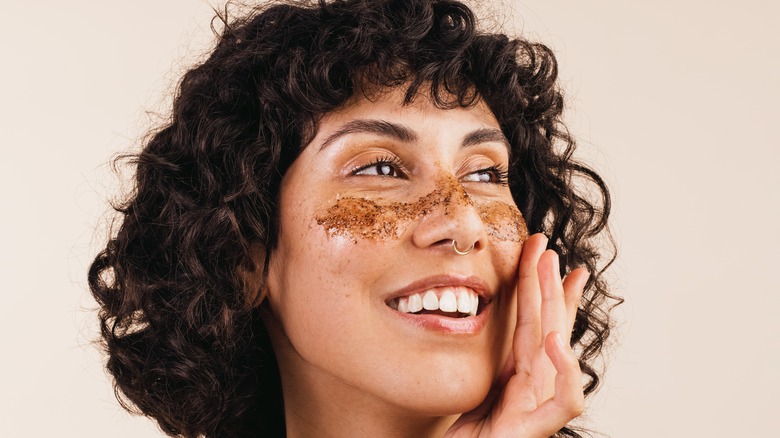Why You Should Think Twice Before Dry Brushing Your Face
Skincare trends are changing constantly, and sometimes you might wonder if a new trend is actually good for your skin or something you should be adding to your routine. One common way to tackle exfoliating is to dry brush your face and body. Dry brushing means taking a stiff-bristled brush and using it to exfoliate your skin, and the benefits are said to include healthier skin, better digestion, lymphatic drainage, wrinkle reduction, and better circulation.
Dermatologist Shilpi Khetarpal, MD, tells Cleveland Clinic that's not exactly true, or at least not all of the claims can really be backed up. Plus, there are people who should avoid dry brushing their face because it could actually make their skin worse. If you don't use the correct tools or you start at the wrong part of your face, it could also be a negative experience for you. So, before you pick up your brush to exfoliate, make sure you know about the possible downsides of the practice.
Dry brushing could be damaging your skin barrier
Your skin could suffer and show signs if its natural barrier becomes damaged, so it's important to keep it healthy and intact. Dermatologist Dr. Ramya Garlapati tells Elle UK that dry brushing could be causing damage to your skin barrier. She says, "Personally, I wouldn't recommend dry brushing your face as this can damage the skin barrier on your face, lead to uneven exfoliation and also cause micro tears in the skin leading to infections." Once the skin barrier is damaged, it takes time to build it up, so you want to be sure to protect it.
Still, dry brushing can be good for your skin if you use the right technique and tools. Healthline suggests getting a clean, dry brush and making sure your face is both clean and dry before starting the process. Then, starting at the very top of your face, brush in circles and work your way down through your cheekbones. Finish by washing your face with warm water and follow up with a moisturizer.
Consider gently exfoliating rather than dry brushing
You should avoid dry brushing if you have skin conditions such as eczema or psoriasis, as harsh exfoliating can cause redness and skin sensitivity. If you want the benefits of dry brushing without the downsides, you might want to try a more gentle method of exfoliation. Make sure you avoid big mistakes when exfoliating by not doing it too often and making sure to use products that work with your skin type.
Still, once-in-a-while exfoliating can be good for your skin. Consultant dermatologist Rachael Burns tells Byrdie, "Exfoliating helps to brighten your complexion, improve the appearance of your skin, and crucially, it helps prevent pore clogging, acne spots, blackheads, and whiteheads." If you don't want to buy a separate product for exfoliating, you can use natural ingredients like sugar, oatmeal, and coconut oil with a regular washcloth if you want a gentler method that will still deliver results.


